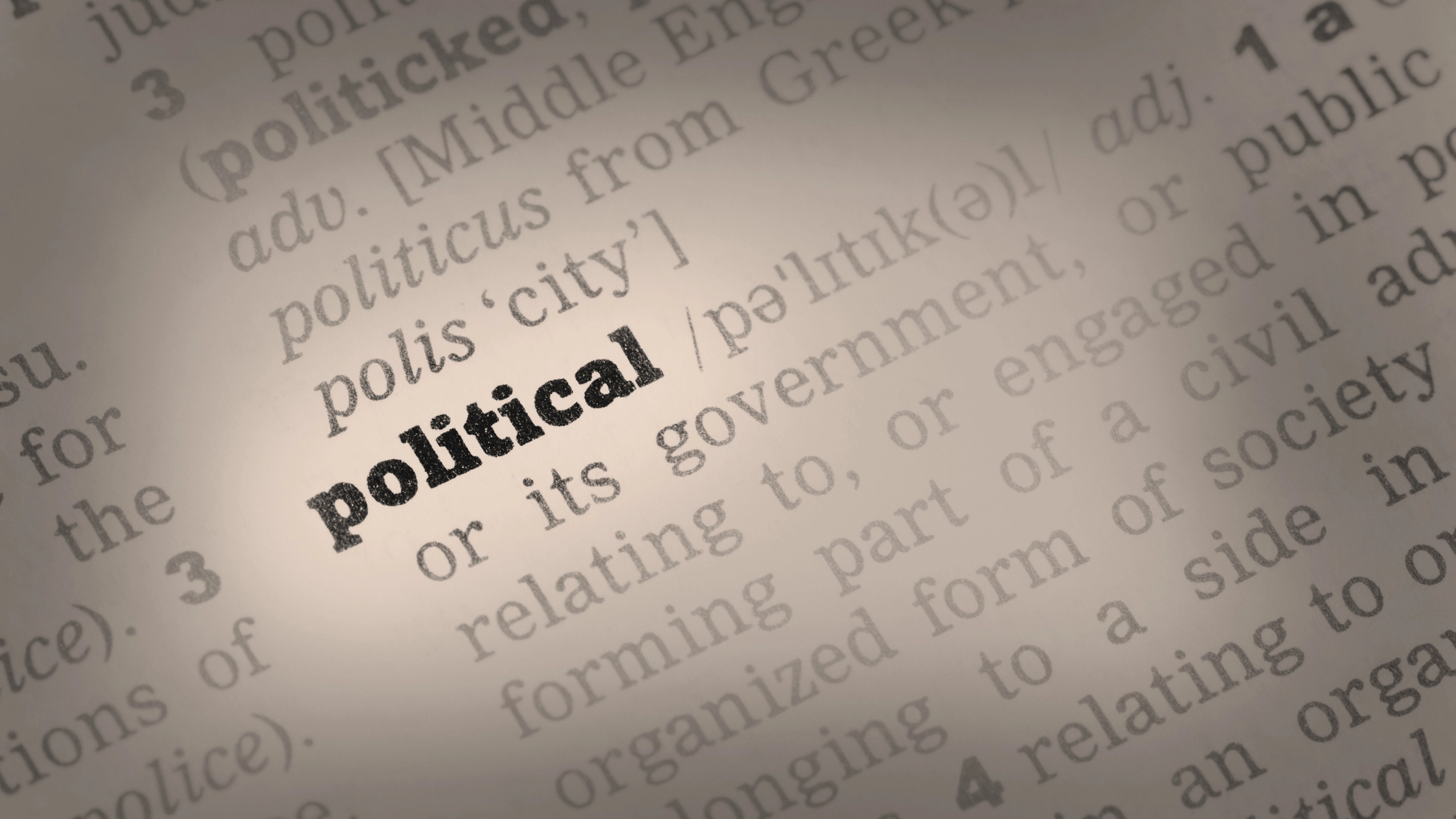Have you ever found yourself puzzled by the political jargon your state senator or representative uses? It's like they're speaking a different language, isn't it? Well, fellow South Carolinians, it's time to crack this code. At ConservaTruth, we're not just about uncovering truths; we're about empowering you, our conservative brethren, to discern fact from fiction in the political arena. This is crucial; understanding the language of politics is the key to ensuring our elected officials stay true to their responsibilities and our conservative values.
Now, let's get something straight right off the bat. Our focus here is on our South Carolina Republican senators and representatives. You might wonder, "What about the Democrats?" Sure, their political linguistics is a whole different ball game, and it's important too. But let's leave that for another day. For now, let's dive into the Republican side of things, which, believe it or not, shares some similarities with the Democrats' tactics.
Consider the current makeup of the South Carolina Legislature. As of December 2023, we're looking at a strong Republican majority in both chambers. In the Senate, it's 30 out of 46 seats. In the House, 88 out of 124. This shows a state leaning heavily towards conservative and traditional values. But here's the twist – having a Republican majority doesn't always guarantee conservative principles in our laws. Shocking, right? I've delved into this in previous blog entries, especially one focusing on the first year's legislative session. It's a must-read for anyone wanting to grasp the full picture.
Now, let's clear up some common confusion. What exactly is the difference between being a Republican and being a conservative in South Carolina? A Republican aligns with national party ideals – think lower taxes, limited government, and free-market policies, mixed with a dose of strong national defense and conservative social values. A conservative, however, goes beyond party lines. It's about cherishing our heritage, advocating fiscal responsibility, personal freedom, and being cautious about change.
Both Republicans and conservatives in our state typically stand for:
Traditional Family Values
Fiscal Responsibility
Limited Government
Strong National Defense
Second Amendment Rights
Pro-Life Principles
Personal Responsibility
Free Market Capitalism
Religious Freedom
State’s Rights
Law and Order
In essence, being a Republican in South Carolina often means embracing these conservative principles. But here's where it gets tricky. Sometimes, there's a gap between what our politicians say and what they do. If their actions don't line up with their words, it's a red flag. It's your duty as a voter to figure out why they're straying from these values. If you don't, you might end up supporting someone who doesn't truly represent conservative principles. That's how we end up with laws that go against the Republican platform, potentially turning our beloved red state a shade of purple. A concerning thought, isn't it?
Let's talk about political language. It's the art of choosing words and phrases that resonate with emotions, values, and beliefs. Politicians use it to frame issues, influence opinions, and sway public perception. Think of campaign slogans like "Make America Great Again" or "Yes We Can." These aren't just catchy phrases; they're calculated to ignite certain feelings and ideas. Sound bites, euphemisms, emotive language, repetition, contrasts, appeals to values, anecdotes, attacks on opponents, and visionary language are all tools in the political toolbox.
The danger lies in being swayed by someone who's a maestro of political language but lacks the substance or integrity for the job. It's easy to be skeptical of newcomers running for office. Their polished political language might not do a great job of hiding their true intentions. But what about the seasoned politicians? How do they use this language to mask their deviations from the party platform? They might emphasize bipartisanship, shift focus to local successes, redefine their actions, avoid divisive topics, appeal to shared values, justify compromises, argue for public good, or call for unity.
Now, political language isn't always deceptive. It's a tool for communication, but like any tool, it can be misused. As voters, it's vital to look beyond the rhetoric and evaluate the full picture. So, my fellow South Carolinians, as we navigate the political landscape, let's sharpen our understanding of this language. It's our shield against being misled and our sword in the fight to preserve our conservative values in the beautiful Palmetto State.
Bonus Section: Decoding Political Language – Real-World Examples
The Art of Evasion:
Example: Imagine a politician being asked about their stance on a controversial bill. They respond, "I believe in putting the needs of South Carolinians first and foremost." Sounds great, right? But notice how they skillfully dodged the actual question. They didn't say yes, they didn't say no; they just wrapped their non-answer in a blanket of feel-good rhetoric.
The Promise of Unity:
Example: A seasoned representative, known for straying from conservative lines, announces, "It's time we come together as one united community, beyond party divisions." It's a heartwarming message, but let's not forget to ask: What about the conservative principles they promised to uphold? Unity is great, but not at the cost of our core values.
The Nostalgia Play:
Example: During a speech, a senator says, "Let's return to the good old days, where hard work and family values were the cornerstones of our society." Nostalgia is a powerful tool. It evokes warm feelings, but also cleverly distracts from current issues. Remember, while the past had its merits, we need solutions for today's challenges.
The Over-Simplification:
Example: A candidate claims, "The solution to our economic woes is simple – cut taxes, and prosperity will follow." While tax cuts can be beneficial, economic policy is rarely that black and white. This example shows how complex issues are often boiled down to catchy, oversimplified solutions.
The Villainizing Technique:
Example: "My opponent is a puppet of big government, out to destroy our personal freedoms." It's a classic us-vs-them narrative. By painting their opponent as a villain, the politician taps into fear and creates a clear 'enemy' for voters to rally against.
The Vision of a Brighter Future:
Example: "Join me, and together we'll build a future where our children enjoy more freedoms and opportunities than we ever did." It's visionary and uplifting. However, while we're all for a brighter future, let's make sure it's grounded in realistic and actionable plans.
The Appeal to Core Values:
Example: "As a true South Carolinian, I value faith, family, and freedom above all else." It's an appeal directly to the heart of our values. But remember, actions speak louder than words. We need to see these values reflected in their policy choices and voting record.
The Compromise Conundrum:
Example: A long-serving legislator says, "While I firmly believe in our conservative principles, sometimes compromise is necessary for the greater good." This statement might seem reasonable at first glance. But let's dig deeper. Are these 'compromises' truly benefiting the state, or are they diluting our core conservative values? It's essential to examine what's being given up in these compromises and whether the outcomes align with our conservative ideals.
The Good Intention Gambit:
Example: A representative proposes a new initiative, saying, "This program is designed with the best intentions to support our communities and foster growth." This kind of statement is appealing because it speaks to our desire to see positive change and support for our community. However, as conservatives, we must remember that good intentions don't always translate to effective or beneficial outcomes. It's vital to scrutinize the details of such programs: How will they be funded? What are the long-term implications? Do they expand government reach unnecessarily?
The More Laws, Bigger Government Argument:
Example: A politician states, "To address these complex social issues, we need to introduce more regulations and laws." This statement might come from a place of wanting to solve real problems. However, as conservatives, we're aware that an increase in laws often equates to an increase in government size and scope. Each new regulation means less personal freedom and more bureaucratic oversight.
The Art of Dodging the Question:
Example: A constituent asks a politician about their stance on a controversial tax reform. The politician responds, "Taxation is a complex issue, and we must consider our state's economic health holistically." Notice how the politician deftly sidesteps giving a direct answer. They acknowledge the complexity of the issue, which is true, but they avoid committing to a specific stance on the reform. This tactic is common and can be quite effective. It allows the politician to appear thoughtful and considerate without risking alienation of any part of their constituency by taking a definitive position.
Subscribe to ConservaTruth's Email Newsletter for curated insights on South Carolina's legislative activities and conservative viewpoints, delivered straight to your inbox! With vetted and easy-to-understand information, our newsletter empowers you to become an informed and engaged citizen, actively participating in safeguarding our cherished Constitutional values. Don’t miss out on crucial updates—join our community of informed conservatives today!





Comments